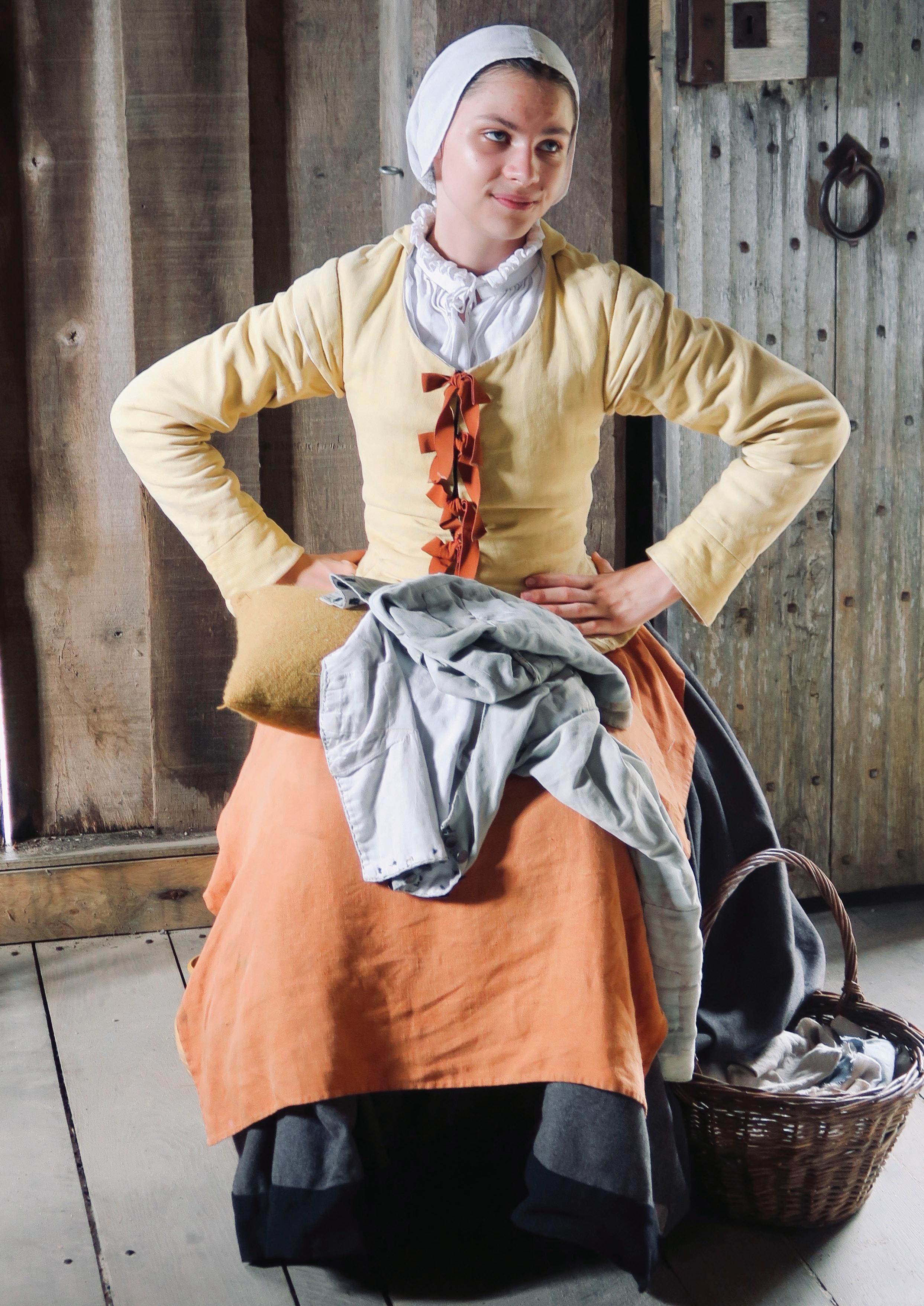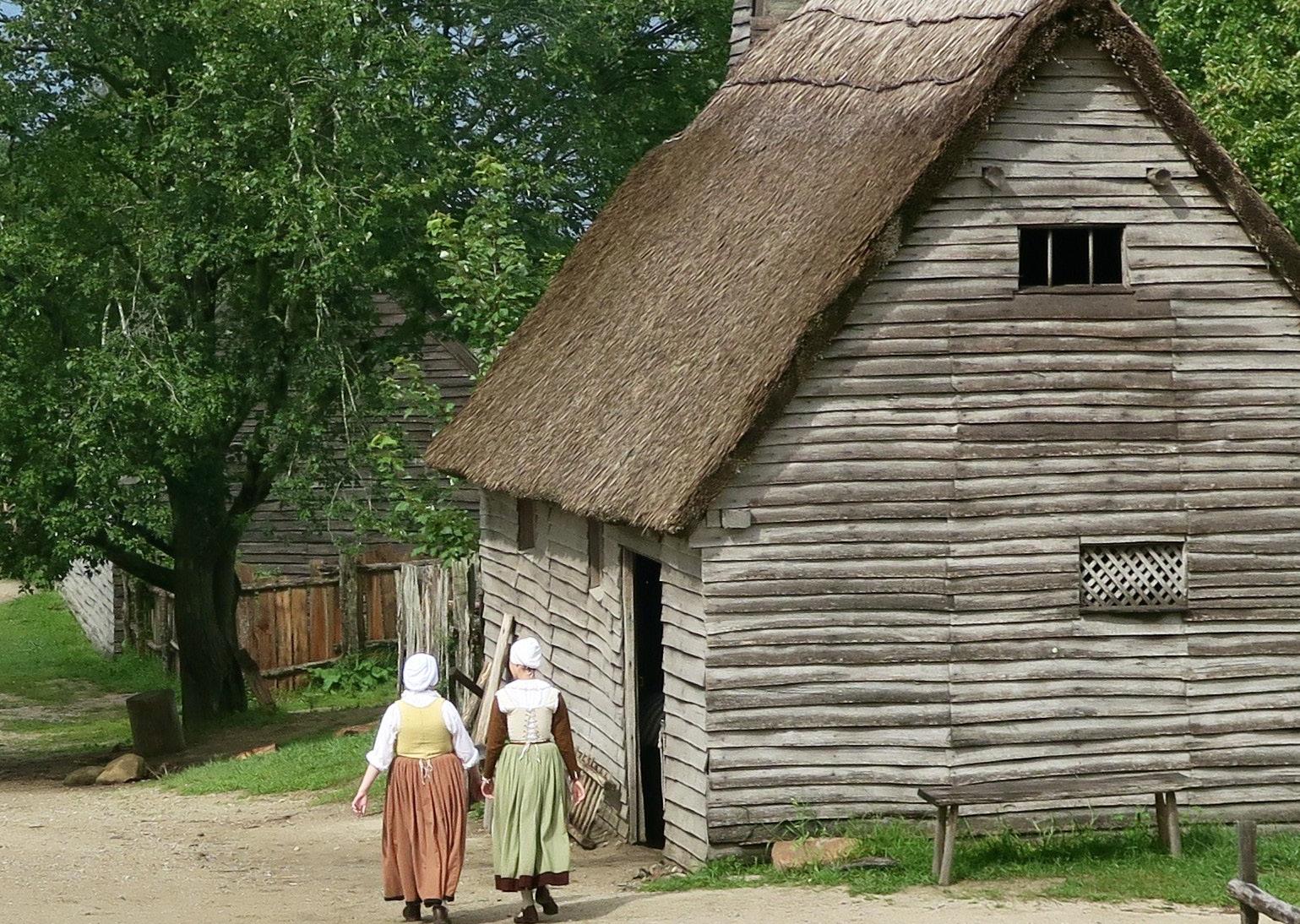
4 minute read
PROFESSIONAL
from OTK Issue 02
by One To Know
Work Too Much? Blame the Pilgrims
How Christmas-banning zealots from 400 years ago are burning you out.
Advertisement
Photos and Story by Shilo Urban
The U.S. is notorious for mastering the art of busyness and feeling guilty when relaxing. We simultaneously scoff at and envy the one-month-long holiday Europeans enjoy in August. Well, you can thank our Puritan forebears, at least for part of it. It’s estimated that 35 million Americans today are descendants of the Mayflower’s 102 passengers. But we are all heirs to their ethos of incessant striving, which continues to shape America’s work-work-work culture.
Regarded by many as strict, stodgy, fun-hating grumps—the Puritans are profoundly untrendy. A recent trip to Barnes & Noble revealed zero books on the Pilgrims in the entire store. These radical English Calvinists have long hogged the spotlight in our country’s founding myth, their flaws overlooked, their big black hats obscuring the central contributions of Native Americans, African slaves, and the Spanish (to name a few). They have a complex and checkered legacy; they were humans, after all. Separation of church and state? That’s the Pilgrims. Janet Jackson’s nipplegate pandemonium? You guessed it. But love them or hate them, the Puritans’ philosophy still affects the daily lives of millions of Americans, whether we are faithful Christians or hardened atheists — and whether we know it or not.
The Pilgrims celebrated the first Thanksgiving in the autumn of 1621, and more than 20,000 Puritans joined them in Massachusetts over the next 20 years. The two groups of Calvinists merged over time, drawn together by distinct values that they planted in the soil next to the pumpkins and corn: diligence, discipline and development (of the self and society). They shared a deep-seated conviction that it was possible to make the world a better place, and they labored with incredible intensity to close the gap between their ideals and reality.
Where did this obsessive drive come from? For the Puritans, hard work wasn’t just good — it was sacred. They didn’t invent this idea; sloth had long been one of Catholicism’s seven deadly sins, and Martin Luther had spawned the Protestant work ethic a century earlier. Idleness, he proclaimed, was “the greatest plague on earth.”
Photo Opposite Page: A Pilgrim’s work is never done. Women sewed and mended clothes whenever they sat down between gardening, cleaning, cooking, and caring for children. Only six women survived the first winter and were on hand to help prepare the first Thanksgiving meal—a three-day feast for an estimated 140 people.
John Calvin took Luther’s words even further, inspiring legions of anxious Puritans. Calvin stressed that humans were sinful and corrupt by nature. Left to our own devices, we would surely turn to the dark side. In other words: Idle hands are the devil’s workshop. Massachusetts Puritans made idleness a criminal offense — even in your own home. Dancing, singing and “unnecessary walking” were also outlawed. Fishing for your dinner was fine, but fishing for fun was most certainly not. Every action had to have a purpose.
Calvinists also believed in predestination: God had already assigned you to heaven or hell, and there was absolutely nothing you could do about it. BUT — and this is a big but — working really, really hard was a sign that you were indeed bound for the pearly gates. “I say show your grace…by doing more than others,” urged minister John Preston. Saturated in the existential angst of an uncertain fate, the Puritans buried themselves in work, warding off the devil with a frenzied search for any indication that they weren’t going to burn in eternal damnation, and generations of American workaholics were henceforth born.
The Puritans forged a powerful mental link between industriousness and salvation, and work remains embedded in the moral domain for many of us. In a recent study in the Journal of Experimental Social Psychology, Americans who were primed with words related to divine salvation (like redeem, heaven and saved) worked harder on a puzzle than those who were not. It didn’t matter whether they were Protestant, Catholic, or not religious at all — only that they were American (the prime had no effect on Canadians or Europeans).
Americans toil longer hours than people in almost every other advanced country, and we are the only one without a national mandate for paid time off. But even when we receive paid time off, we don’t use it: In 2018, 53% of us didn’t take all our paid vacation days, and 33% took none at all.
Why can’t we stop working and just relax? Perhaps on a subconscious level, we feel like less worthwhile human beings when we do — just like the Puritans.
Remember the minister who said to show your grace by doing more than others? He crammed several careers into his short life before dying at 40, his health broken by exhaustion. So the next time you feel guilty for working a little less, remind yourself that you don’t have to earn your worthiness, and kick off those buckled shoes, because you are not a Pilgrim.

Unnecessary walking? Better not be. Historical actors stay busy at a recreation of the Pilgrims’ settlement at the Plimoth Patuxet Museums in Plymouth Massachusetts.









